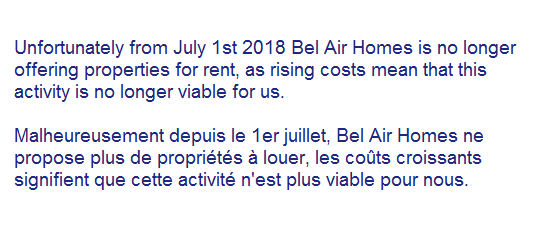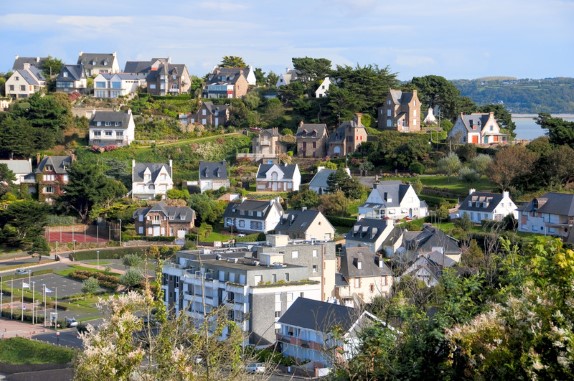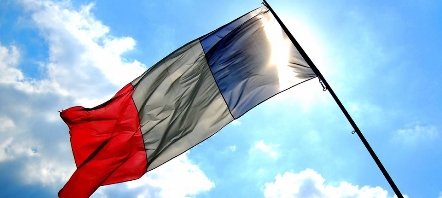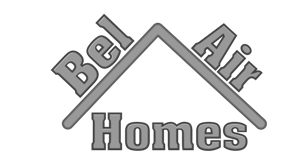Téléphone : 0033 (0) 2 97 27 01 71
Portable / Mobile : 0033 (0) 6 77 35 67 34
Du lundi au samedi - 9:30 à 18:00 - Monday to Saturday
Entreprise Créée En Février 2004
Location de Biens Immobiliers / Property Rental
Pas de frais d'agence pour les locataires !
No agency fees for tenants!
Notre commission est 5 % de la première année de loyer pour les propriétaires.
Our commission is 5 % of the first year's rent for landlords.

A friendly professional bilingual service designed around your requirements.
Un service professionnel bilingue pour répondre à vos attentes.

Guide To Renting Property in France
This guide is for information only.
The terms and conditions of the standard French lease agreement will apply to all property rentals.
Term :
There are two types of long-term rental contract in France.
The 3 year unfurnished rental contract allows tenants to give 3 month's notice at any time, and the landlord can only give 6 month's notice that the contract will not be renewed after 2 years and 6 months.
The 1 year furnished rental contract allows tenants to give 1 month's notice at any time, and the landlord can only give 3 month's notice that the contract will not be renewed after 9 months.
If neither party serves notice, the rental contract will be renewed by tacit agreement.
Furnished Rental Contents As Defined By The Regulations :
For furnished rental contracts signed after September 2015, the properties must contain the following.
Bedding with duvet, or blanket.
Shutters or curtains in the rooms.
Hotplates.
A microwave oven, or an oven.
A refrigerator.
A freezer, or alternatively, a refrigerator with a freezer compartment with a maximum temperature of -6 °C.
Crockery in sufficient numbers for the occupants to have meals.
Kitchen utensils.
A table and chairs.
Seating
Storage shelves
Lighting
Housekeeping equipment adapted to the characteristics of the property. For example, a vacuum cleaner if there is a carpet, or a broom and a mop for tiled floors.
Deposit :
The deposit cannot exceed one month's rent for unfurnished properties, and cannot exceed two month's rent for furnished properties.
The tenant pays a security deposit to the landlord, and this amount will be refunded without interest to the tenant at the end of the lease, and no later than ONE MONTH after the keys are returned if the condition report of the rental property (état des lieux) is consistent with the condition report from the beginning of the rental agreement.
The deposit will be refunded without interest to the tenant at the end of the lease, and no later than TWO MONTHS after the keys are returned if the condition report of the rental property (état des lieux) is NOT consistent with the condition report from the beginning of the rental agreement.
At the end of the tenancy any amount that the tenant owes the landlord, or is responsible for, will be deducted from the security deposit, subject to proof thereof.
The Landlord’s Obligations :
To provide decent housing ( logement décent ) that is not detrimental to the health and safety of their tenants. The property should be in a generally good condition, with the drainage, water supply, electricity supply, and heating systems functioning correctly.
To carry out essential repairs when necessary.
To provide the obligatory diagnostics.
To provide a certificate de ramonage, which is proof that any chimney has been swept.
To provide l’attestation d’entretien, which is proof that any boiler has been correctly maintained.
To inform the tenant of the type of television reception available, or not, at the property.
To provide les quittances de loyer ( rent receipts ) for each rental payment made.
To inform the utility companies when the rental contract starts to close accounts with them, and to inform the utility companies again when the rental contract is terminated to open accounts with them.
To obtain propriétaire non-occupant insurance for the duration of the lease.
To pay the taxe foncière.
The Tenant's Obligations :
To provide proof of regular income of at least three times the annual rent.
To pay their rent on time.
To pay the taxe d’habitation for any year when they are the tenant of the property on the first of January.
To provide an attestation that there is a fully comprehensive insurance policy in place for the property when the rental contract is signed, and proof of this insurance on an annual basis.
To provide a guarantor should the owner request one.
To pay the deposit (dépôt de garantie), and the first month’s rent when the rental agreement is signed.
To inform the utility companies of the date that the rental contract starts, creating new accounts, and closing these accounts when the rental contract is terminated.
Be responsible for any damage or losses, and to inform the insurance company and landlord should this occur.
To maintain the property, including gardens, all inside piping, water and gas taps and valves, and small electrical appliances from the distribution board onwards.
To maintain and clean heating systems, water heaters, and air conditions systems according to current regulations, and at least once a year. To take out a maintenance contract with a specialist company, and to provide receipts plus l'attestation d’entretien for central heating boiler services.
To take all precautions to prevent water pipes freezing.
To have the chimney swept as often as necessary according to current regulations, and at least once a year. To provide receipts, and a certificate de ramonage confirming that it has been swept.
To have the chimney swept before the end of the lease, even if it should be less than a year since it was previously swept.
To maintain the individual sanitation system (fosse septique) should there be one, and provide proof of its maintenance.
Not to change the heating system, or alter the property without the owner’s written permission.
To inform the landlord of any problems with the property, including the presence of pests.
To inform the landlord of any change of personal circumstances.
Not to sublet the property.
Not to disturb neighbouring properties, especially with excessive noise.
Not to keep any animals likely to cause disturbance to neighbouring properties with excessive noise or smells for example, especially dangerous dogs.
To leave the property empty for 2 hours at a convenient time on a working day should viewings need to be conducted for the purpose of finding future tenants, or for the sale of the property. If no convenient time can be agreed, viewings will be scheduled between 17:00 and 19:00.
At the end of the lease, tenants must provide their new address.
Bel Air Homes :
We prepare the publicity, and advertise your property widely.
We ask any potential tenants to provide proof that they, or any guarantor, can pay the rent. This would normally mean that they have an income of at least three times the rent. The documents that we ask for include proof of identity, their last three payslips, their latest tax return, their work contract, rent receipts from their current landlord, and their bank details (RIB).
We conduct all the viewings of suitable potential tenants, but it is the owner who makes the final decision as to who rents the property.
Should both parties wish to proceed, we deal with all the formalities.
We can arrange the Diagnostic de Performance Énergétique if you wish.
The rental contract, with the meter readings added, is signed at the property by the tenants and the owner, or if the owner cannot be present we can forward the rental contract by post.
We collect two cheques from the tenant at the time of signing the rental contract, payable to the owner. One for the security deposit, and one for the first month’s rent.
The rental dossier will include : A copy of the legislation, an engagement de caution if there is guarantor, the signed rental contract, an état des lieux d’entrée, which is a condition report that is agreed and signed by both parties, an état des risques naturels miniers et technologiques, and an inventory for furnished properties.
Once the contract is signed, we provide the keys to the property, and the owners RIB ( bank details ) to enable the tenant to arrange the direct debit for subsequent monthly payments. We do not collect the rent.
We advise all landlords to take out an insurance policy against the non-payment of the rent, and damage to the property. It is known as the 'garantie loyers impayés' (GLI).
Throughout the tenancy we continue to liaise between both parties, and provide help where necessary. There is no charge for any work relating to the signing of the rental contract, though we reserve the right to charge for work unrelated to the signing of the rental contract, such as unscheduled visits to the property, or pursuing unpaid rent. The charge would be 40 € per hour to include VAT.
An état des lieux de sortie is carried out by us at the end of the tenancy, to be agreed and signed by both parties. There is no extra charge.
We ask for just 5 % of the first year’s rent as commission to include VAT. We do not ask for commission for subsequent years.
Please note that we do not offer a property management service ( gestion immobilière ).
A friendly professional bilingual service designed around your requirements.
Un service professionnel bilingue pour répondre à vos attentes.
http://uk.france.fr/

Houses for rent in Brittany France / Maisons à louer Bretagne France
Morbihan 56, Côtes d'Armor 22, Finistère 29, Ille-et-Vilaine 35
Agence Immobilière - Low Cost - Estate Agency

